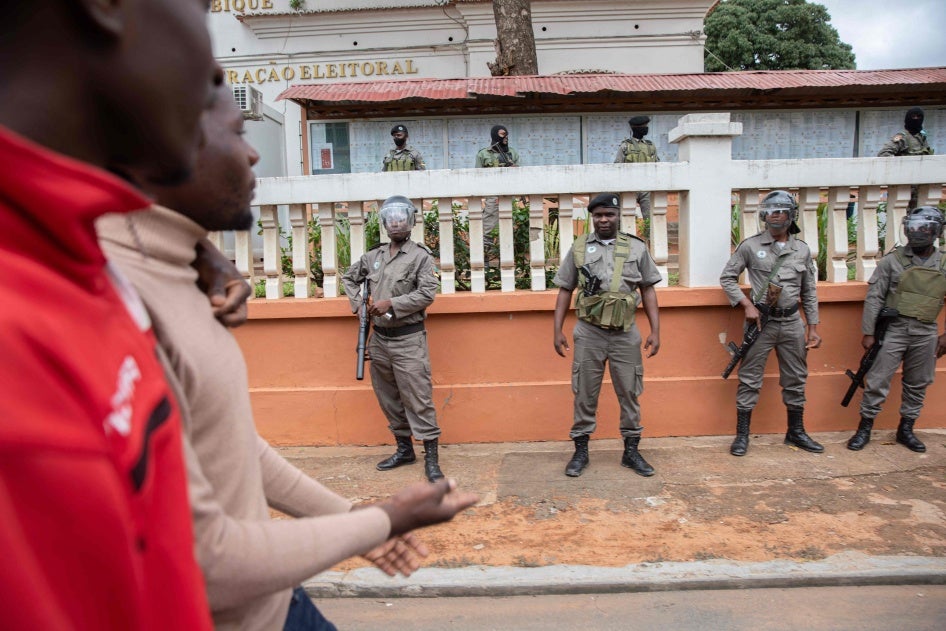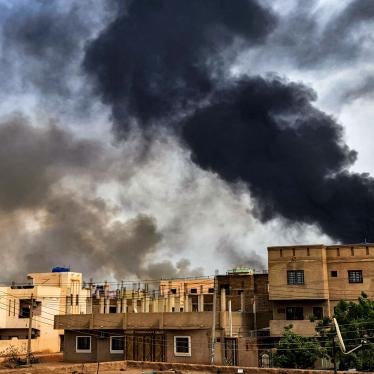(Johannesburg) – Southern African governments targeted and clamped down on their political opposition, activists, and journalists in 2023, Human Rights Watch said in its World Report 2024.
Southern Africa has historically faced problems such as political instability, and issues related to freedoms of expression, association, and equal participation. In 2023, these concerns have been closely related to free and fair elections, abusive responses to political unrest and clamping down on civic spaces. These actions have contributed to a steady decline in rights protection and guarantees in the region.
“The authorities should immediately address the escalating cases of abduction, arbitrary detentions, torture and killings of opposition political activists,” said Allan Ngari, Africa advocacy director at Human Rights Watch. “The lack of tolerance for political plurality and freedoms of expression and association indicate backsliding on citizen’s guarantees to human rights.”
In the 740-page World Report 2024, its 34th edition, Human Rights Watch reviews human rights practices in more than 100 countries. In her introductory essay, Executive Director Tirana Hassan says that 2023 was a consequential year not only for human rights suppression and wartime atrocities but also for selective government outrage and transactional diplomacy that carried profound costs for the rights of those not in on the deal. But she says there were also signs of hope, showing the possibility of a different path, and calls on governments to consistently uphold their human rights obligations.
In Southern Africa, elections in Angola, Mozambique, Eswatini and Zimbabwe, provided an opportunity to consolidate and further strengthen human rights, democracy, and the rule of law. However, the periods prior to, during and after the elections have been marred with serious abuses of human rights. Several parliament members, opposition political activists, and human rights defenders have been kidnapped, tortured and killed.
Governments in some countries in the region have been criticized for suppressing opposition voices, clamping down on civic space, and restricting independent journalism. Election observers concluded that Zimbabwe’s general elections in August and parliamentary by-elections in December fell short of regional and international standards governing democratic elections.
Activists and members of the Citizens’ Coalition for Change (CCC), Zimbabwe’s main opposition political party, have been targeted by assailants allegedly linked to covert state police operations teams, including one commonly referred to as “Ferret Team.” In one such case, Tapfumeyi Masaya, a political activist, was found dead on November 13, in Chabwino farm in Mashonaland East Province.
Eswatini held parliamentary elections in September. Thulani Maseko, the leader of a coalition of opposition political parties and civil society organizations, the Multi-Stakeholder Forum, was assassinated hours after the king warned that those calling for democratic reform would be dealt with by mercenaries. Political parties have been banned in Eswatini since 1973, and the king holds absolute power.
In Zambia, freedoms of assembly and association were under pressure in 2023, as authorities used the Public Order Act to disrupt opposition activities, including by refusing to authorize opposition meetings and rallies. Despite pledges from President Haikande Hichilema to repeal the NGO Act No. 16 of 2009, his administration has not done so. The law unduly restricts the activities of nongovernmental organizations and civil society groups, including by placing them under the authority of a government-dominated NGO Registration Board.
In Mozambique, similar efforts by the authorities were defeated when parliament members revised a draft law that conflated operations of nongovernmental groups with counterterrorism financing and anti-money laundering measures, including providing for excessive governmental scrutiny and shutting down organizations without recourse to judicial review.
Security forces targeted civic groups and political opposition members participating in largely peaceful protests in October, using excessive force. Many civilians were killed as the conflict in Cabo Delgado continues unabated.
In Angola, security forces have for decades committed unlawful killings, used excessive force against protesters, and arbitrarily arrested and detained opposition activists. In 2023, they carried out more than a dozen unlawful killings and numerous other serious violations against political activists and peaceful protesters.
The restriction on civil and political rights have been compounded by social and economic disparities, which exacerbated anti-immigrant sentiments and xenophobia in the leadup to South Africa’s 2024 general elections. South Africa’s Department of Home Affairs published a White Paper on Citizenship, Immigration and Refugee Protection, which seeks to overhaul its migration system, by reviewing or withdrawing from the 1951 Refugee Convention and the 1967 Protocol with a view to accede to them with reservations. Vigilante groups, such as Operation Dudula (isiZulu word meaning “to push out”), have reportedly violently targeted and harassed foreign nationals.
The silence and inaction of the government in the face of anti-immigrant hate speech, including by public officials, blocking foreign nationals from accessing health care, and raiding and closing businesses belonging to foreign nationals, is a blight on South Africa’s constitutional and international human rights obligations, Human Rights Watch said. The authorities should investigate all reported abuses against migrants, asylum seekers, and refugees by authorities or civilians and ensure accountability, including through appropriate legal action; and implement reforms and oversight systems.
In Malawi, refugees have also faced the brunt of government excesses. Since May 2023, the Homeland Security Ministry has detained and forcibly relocated 902 refugees and asylum seekers, including children to Dzaleka refugee camp. The government states that the refugees and asylum seekers have not followed the “proper procedures” and violated their rights to freedom of movement, education, and basic standards of living.
In the past year, Southern African governments have faltered in their commitment to human rights and rule of law on which effective democracies are built, through the progressive dismantling of checks and balances on executive power, including restricting parliaments and the independence of the judiciary, and violating citizens’ rights and freedoms of association and expression.
The authorities should do more to uphold and protect human rights, meet everyone’s basic needs, and strengthen the protection of all groups, including refugees and internally displaced people in line with governments’ national and international obligations.
For more Human Rights Watch reporting on Africa, please visit:
https://www.hrw.org/africa
To read Human Rights Watch’s World Report 2024, please visit:
https://www.hrw.org/world-report/2024








